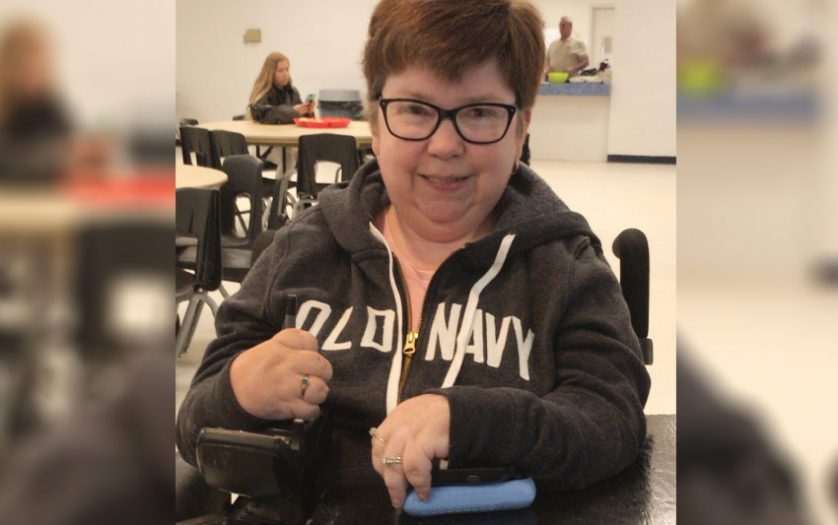How Ontario’s Direct Funding Program Changed My Life

I was diagnosed with Juvenile Rheumatoid Arthritis at the age of 2 — I will be turning 50 soon. The arthritis affected every single joint in my body, leaving me with limited mobility. I use a wheelchair and require assistance with all activities of daily living including getting out of bed, toileting, showering, dressing, eating, etc.
As a child, my mother was my sole caregiver. In 1993, my mother died of cancer; it was at that time I began using home care agencies.
Thankfully in Canada, home care is provided, free of charge, under our universal health care system. This means, however, that because a large number of people receive home care, each individual is allotted very little time.
I was given 1 hour a day, just enough for the home care worker (usually a different one every day) to get me out of bed, showered and dressed. The worker made me a lunch in the morning that had to sit beside me for hours, as I wasn’t able to get up by myself. I had to wait all day, until my sister returned home from work, to use the bathroom. It was a horrible feeling, knowing I shouldn’t drink too much incase I couldn’t hold my bladder. It was a very difficult time, relying on family, struggling to live any quality of life. It was an extremely depressing time.
In 1994, my life completely changed – Ontario launched a pilot project called the Direct Funding (DF) Program, run by the Centre for Independent Living in Toronto (CILT).
The DF Program enables adults with physical disabilities to receive monthly funds to hire attendants of their own choice, to schedule as they want – whether their needs are at home, at work, or in the community. Through the program, people with disabilities become the employers and self-managers, taking full responsibility for hiring and managing their own attendants, determining how and when their services are provided, and directly their own care.
I signed a legal contract and, as a Self-Manager, I report quarterly to CILT, outlining exactly how I am spending my budget. Everything is legally-binding and the funds are for attendant services only – I am accountable for all used funds.
To say this program changed my life is an understatement. It gave me freedom to live my life the way I want – waking up at a time I pick, using the bathroom whenever I need to, eating when and what I want, attending appointments and social events. The program gave me control of my life – I direct and self manage my own care, rather than an agency dictating when and how my needs are met. I hire and train my own attendants, prepare my own schedule and change it as I choose, and fire attendants that aren’t compatible with my needs. It has also given me new skills as I am responsible for administering payroll to my employees, preparing income tax information and remitting appropriate payments to the government. Essentially, I’m running my own small business and have all the responsibilities associated with that.
Without this program, I would either be in the same position as before, receiving limited, inconsistent and inconvenient home care, or I would be in a long-term care home.
The program was so successful that it became a permanent program in July,1998, and has been expanded several times over the years. There is a waiting list for people hoping to become part of the program.
I was one of the first Self-Managers; 26 years later, I’m still so grateful to have been chosen.
The Direct Funding (DF) Program is administered by the Centre for Independent Living in Toronto (CILT), Inc. in partnership with the Ontario Network of Independent Living Centres (ONILC). It is funded by the Ontario Ministry of Health and Long-Term Care through the Toronto Central Local Health Integration Network.







